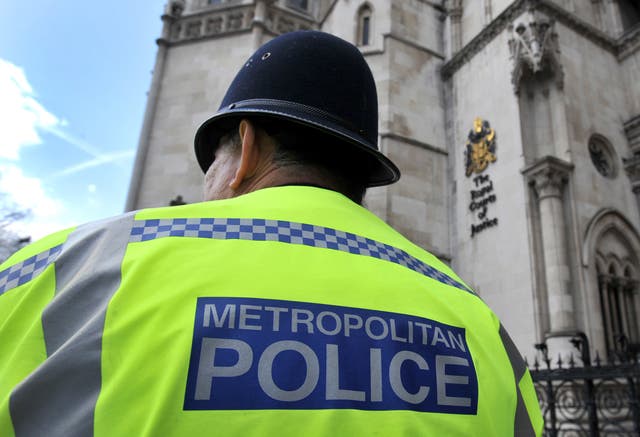Police chiefs warn of possible cuts to officer numbers amid budget shortfalls
Ben-Julian Harrington, Chief Constable of Essex Police, said: ‘To put it bluntly, the books don’t balance.’

Two police chiefs have warned that they face having to cut the number of officers in their forces if shortfalls in their budgets are not addressed.
The Metropolitan Police faces a £450 million budget shortfall next year meaning that 2,300 officers and 400 staff could have to be cut, while Essex Police faces a £34 million shortfall which could mean a reduction of 200 officers.
Ben-Julian Harrington, Chief Constable of Essex Police, said: “To put it bluntly, the books don’t balance.
“My budget gap for next year is about £34 million.”
He said the “vast majority of that comes from pay progression, it comes from increased salary costs of the officers and the staff”.
Mr Harrington said he had written to Home Secretary Yvette Cooper to raise concerns about the financial position.
He said that there could be a “reduction of about 200 officers in Essex” due to the budget shortfall, but cautioned: “I want to be careful because I’ve not made decisions.
“The discussion is not finished but ultimately I may have to make choices about what services I can deliver.
“I don’t want anyone to doubt, certainly the people of Essex, our commitment as a force to carry on reducing crime and anti-social behaviour, protecting victims, bringing people to justice and keeping the county safe.
“But the bottom line is… we’ve squeezed the lemon and it’s pretty dry so there’s not many more efficiencies to have around this.
“And ultimately if I’ve got less people they can work as hard as they can but if there’s less of them they can only do less.”
He said that around £27 million of the £34 million budget shortfall was pay, but he added that some officers had already left for higher pay elsewhere – with one officer leaving to become a train driver.
Mr Harrington also cited heating, lighting, fuel and buildings as costs, and said the force had spent almost £1 million on kennelling dogs this year.
XL Bully dogs were made illegal to possess without an exemption from February of this year, and Mr Harrington said the force is currently kennelling around 145 dogs.
“I think we want the same thing as this Government which is to carry on reducing crime, to carry on protecting victims, to carry on reducing anti-social behaviour and all I’m trying to do is make sure they’re giving me the resources to do that,” he said.
Meanwhile, in a report submitted to the London Policing Board, Sir Mark Rowley said that the Met faces a £450 million budget shortfall in 2025/26, meaning that 2,300 officers and 400 staff could have to be cut.
The Met is able to make £100 million in savings, but the Commissioner’s report said: “The financial constraints we face in 2025/26 mean we will be forced to take tough choices to reduce the service we offer Londoners.”
Cuts, which may start as soon as January, could affect teams including those that target violence and organised crime such as the Flying Squad; dogs and the mounted branch; intelligence teams, the forensic services and Royal Parks police.
The current assumptions depend on what budget is set for the force next year and could change, Sir Mark said.

Sir Mark told a meeting of the London Policing Board: “Next year we want to continue to strengthen performance, we want to continue to reform but we’re going to have to do it in the context almost certainly of a very, very challenging budget settlement.”
He continued: “This is going to be really difficult for our people because we’re asking more of them.
“We’re expecting policing to improve.
“They’re massively committed and particularly the people in the areas that are going to bear the brunt of these tough choices.
“That’s tough on them because of the expectations and how they feel about the message it sends to them which isn’t intended.
“That’s going to be a difficult leadership challenge for us over the next year.”





